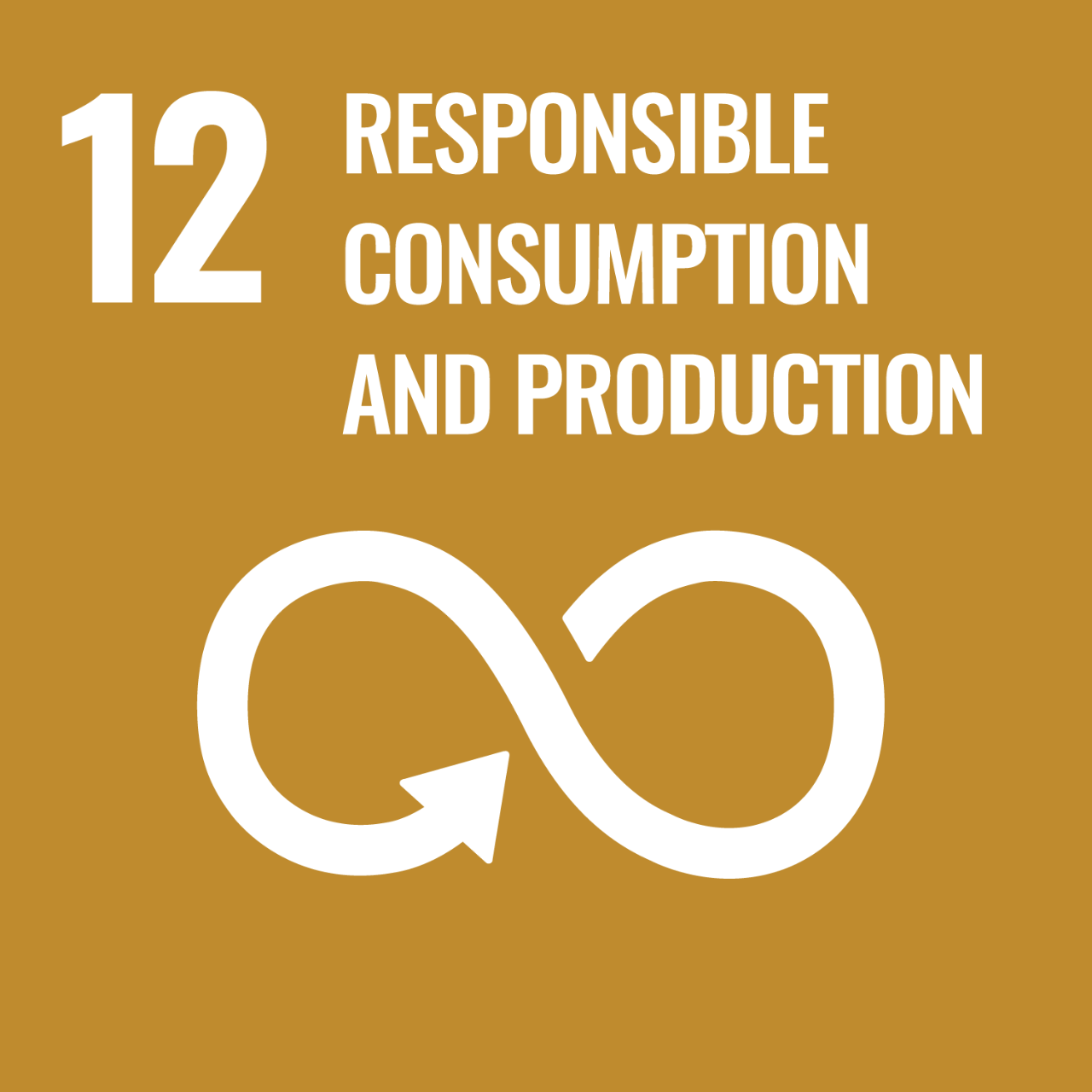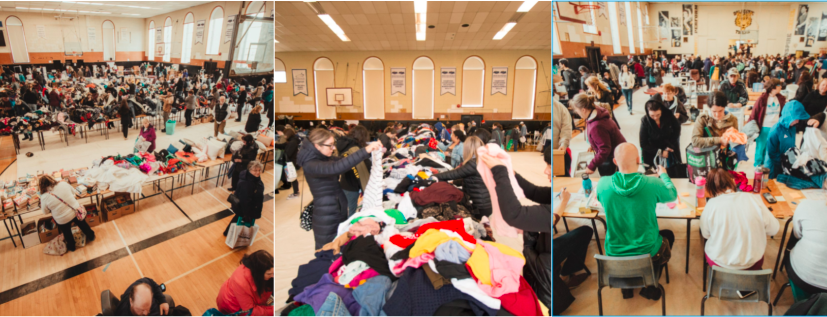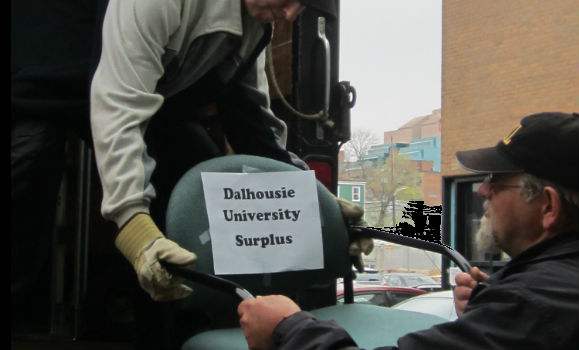
Our planet is running out of resources, but populations are continuing to grow
If the global population reaches 9.8 billion by 2050, the equivalent of almost three planets will be required to provide the natural resources needed to sustain current lifestyles. We need to change our consumption habits, and shifting our energy supplies to more sustainable ones are one of the main changes we must make if we are going to reduce our consumption levels.
High-impact research
Dal researcher wants to ensure AI doesn’t ruin the environment
Large language models like ChatGPT run constantly, waiting for a user to ask a question and the data centres required to power these models currently account for three per cent of global energy consumption. Read the Dal News story about research focused on training the models more efficiently, so the electrical draw and subsequent emissions are reduced.
Study reveals more than half of branded global plastic waste linked to just 56 companies
Researchers have found a clear link between plastic production and plastic pollution. The team, including co-author Dr. Tony Walker of Dal's School for Resource and Environmental Studies, also determined that companies producing single-use consumer goods disproportionately contributed to the problem. Read the Dal News story about this first robust quantification of the global relationship between production and pollution.
The Centre for Research in Sustainable Supply Chain Analytics (CRSSCA), in the Faculty of Management, is the supply chain research hub of Eastern Canada. The Centre is developing insights into the intricate relationships between supply chain operations, green logistics, and sustainable consumption.
Consider less consumerist options for kids' birthday parties
Dr. Anders Hayden, who teaches a course on the Politics of Consumption, was interviewed about the growing popularity of toonie and fiver birthdays, which downplay the emphasis on gifts. Read the interview on Saltwire.
A climate villain? Measuring and managing meat's impact on the planet
Look at just about any popular media article on personal changes you can make to save the planet and near the top of the list you’ll likely see cutting out meat — or at least decreasing meat consumption dramatically. But is animal protein the climate villain it’s made out to be? And can we continue to eat meat in a way that’s sustainable? Read the Dal News story about the sustainability of meat.
Use of disposable plastics in food industry rose sharply during the pandemic, but Dalhousie study suggests it's time to move back to reusables in accordance with health guidelines
Researchers at Dalhousie University examined the rise in SUPs during the pandemic by consulting with stakeholders from the food service sector about their use of disposable plastics, and developing opportunities to reduce their use in Nova Scotia. Read the media release on this research about single use plastics.
Exceptional student experience
Free finds: Dal hosts first Free Store
Planning and coordination for the Free Store has been underway for months. Items were collected from students during residence move out last April and from faculty, staff and additional groups across campus. A total of 3.5 tonnes of items were collected and diverted from landfill. Read the Dal News story about how the Free Store diverted one tonne of goods from the waste stream and served 200 visitors during the pop-up.
Understanding our world
At Dalhousie’s School for Resource and Environmental Studies (SRES), we’ve been working towards a more sustainable future for more than 40 years by offering graduate education in environmental management, science and policy. As a school, we’re working to address the environmental challenges associated with many human activities that threaten communities, nations and the earth.
College of Sustainability
Dalhousie’s College of Sustainability has offered community-engaged undergraduate education in sustainability for over a decade. Its ESS (Environment, Sustainability and Society) curriculum is unique in Canada.
The Concept Project: Polar March
Dalhousie's supply chain society, Dal Chain, collaborated with a Dalhousie student-founded initiative, The Concept Project, during the month of March. The Polar March project involved jumping into bodies of water fully clothed every day in March (even in freezing weather!), and then washing and donating those clothes to non-profit organizations across Halifax, particularly Souls Harbour Rescue Mission. The project had a dual focus: supporting the homeless community and raising awareness of the over-production and mass consumption of clothing. More than 60 students participated throughout the month.
Local, national and global impact
Leah Ellis (BSc’11, MSc’13, PhD’18) is the co-founder and CEO of Boston-based Sublime Systems, whose decarbonized cement seeks to keep the world building sustainably
Sublime Systems instead uses an electrochemical process to make cement at ambient temperature from a variety of abundant calcium sources. The result is a decarbonized cement that performs like the old standby and helps the construction industry commit to being net zero by 2050. Read the DAL Magazine story about this alum-led innovation.
Engage with faculty from the School of Resource and Environmental Studies to find the answers you need
SRES experts regularly collaborate with industry, government and NGOs to provide expertise in addressing resource or environmental sustainability challenges. Organizations from all over the world reach out about resource and environmental sustainability issues because SRES has the expertise and resources to solve them—and a track record to back it up.
Foundation for inclusion and distinction
Serving up sustainability: Dal earns Fairtrade campus designation
The university has officially been designated as a Fairtrade Campus, offering ethically sourced coffee, tea and chocolate in all meal halls, food establishments and catering services. Read the Dal News story about how Fairtrade is at the core of Dalhousie's commitment to sustainability.
Dal joins pilot supplier program that could open doors for more diverse‑owned businesses
The university is participating in a new Supplier Diversity Pilot Program for Nova Scotia. The program provides tools, resources, and connections that will help link Dalhousie with diverse-owned businesses who can provide products and services through the university’s purchasing processes. Read the Dal News story about this initiative organized through the Canadian Aboriginal and Minority Supplier Council.
Sorting smarter: Campus campaign serves up a reminder on what waste goes where
Dalhousie’s waste-sorting system has become a lot more robust since it made a big switch in 2013 to offer clear separation of each stream: garbage, paper, compost, and recyclables. Since then, the task has been ensuring people understand what goes where. Read the Dal News story about how everyone on campus has a role to play in waste management.
Paper Policy regarding paper use on campus
The Paper Policy is aimed at reducing Dalhousie University's environmental and economic footprint through paper sourcing, reduction, reusing and recycling efforts. Paper purchased at the Dalhousie Print Centre is 100% post-consumer paper, the base paper for the university. The base office paper is FSC (Forestry Stewardship Council) or SFI (Sustainable Forestry Initiative) certified.

